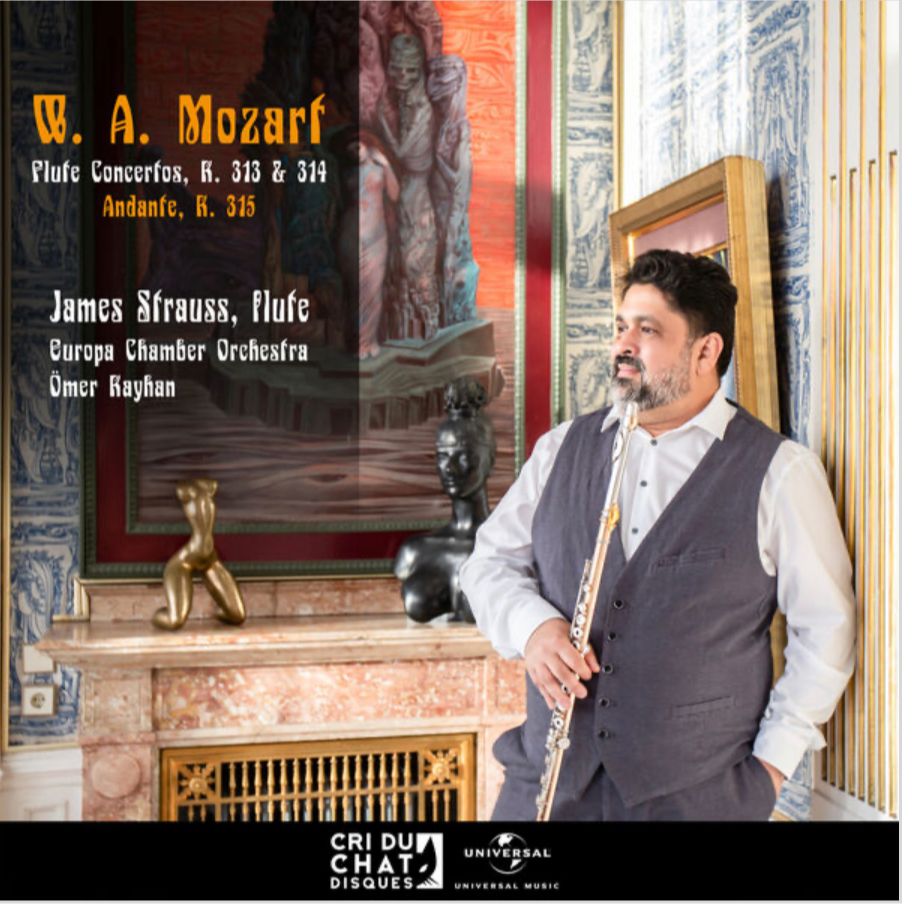Wie Stark Ist Nicht Dein Zauberton...
Playing Mozart's concertos presents a significant challenge for a flutist, akin to that faced by violinists with Bach's sonatas and partitas, or cellists with the suites of the same composer. This challenge arises with masterpieces that have become part of our repertoire from an early age; when we are confronted with the exceptional before the ordinary, or when we are taught the exception before the rule. How do we find the distance that will allow us to offer a personal interpretation? How do we objectively look at what is already familiar? How do we judge and appreciate as adults what has been taught to us since childhood? How do we question the precepts instilled in us during our formative years of study? And, finally, how do we escape the prison of tradition?

My journey with Mozart's concertos began with a vivid memory of the first time my father came home with an LP of Aurele Nicolet playing Mozart's concertos on the flute, accompanied by the Concertgebouw Orchestra conducted by David Zinman. This version became the favorite of my first flute teacher, Sergio Campelo, still in Recife, in the late 80s. It remained etched in my memory for years, and it was with this interpretation that I first learned the Concertos in G K.313 and in D K.314, with Aurele Nicolet as a reference. His style left an indelible mark on me. Later, in the 90s, I had the privilege of playing the first concerto for Aurele Nicotet in 1996 the second concerto in D major for Jean-Pierre Rampal himself in 1998, and in 2021 I had the opportunity to work with Sir James Galway, and only now almost 40 years after hearing Mozart for the first time, I dared to say something through my flute. James Galway showed me a new level in the art of the flute; his tone, the cantabile, the legato - I had never heard a flute sound like that before. As a teenager, I longed to imitate and play something similar.
However, my admiration for Galway was challenged when I came across not just one, but two different recordings of the same concertos, performed by Jean-Pierre Rampal. One was accompanied by the Vienna Symphony Orchestra, under the baton of Theodore Guschelbauer, and the other by the Jerusalem Chamber Orchestra, conducted by Isaac Stern. The precision of articulation, the lightness of vibrato, and an unparalleled détaché impressed me in Rampal's last recording.
It was at that moment that I found myself in a dilemma. How can I play with Nicolet's style, the power and expressiveness of Galway, or the elegance of Rampal? This is a task that, to this day, seems impossible to me, but nevertheless, I decided to try. After all, it is in this quest for the best personal interpretation that the true essence of music lies.
Mozart's Flute Concertos, a milestone in the history of classical music, came to life in an engaging manner, where I had the honor of being the solo flutist, accompanied by the magnificent Europa Chamber Orchestra, under the baton of Maestro Ömer Kayhan. With their melodic richness, technical brilliance, and emotional depth, these works continue to captivate audiences worldwide. The recording of this album was a memorable event for me. Every note, every musical phrase, was carefully captured to convey the essence of Mozart's concertos. I dedicated months (maybe years… ) to meticulous preparation, studying every detail of the compositions and collaborating closely with the Europa Chamber Orchestra and Maestro Ömer Kayhan to create refined and authentic interpretations.
https://open.spotify.com/intl-pt/album/5ocMSWNeFRTkJYz4lnZzPC (James Strauss)
https://open.spotify.com/intl-pt/album/7pqfYKItpP1FUGHdd8aGWj (Aurele Nicolet)
https://open.spotify.com/intl-pt/album/3lsfzRT5ZmJ4WVCWhpHMrr (James Galway)
https://www.youtube.com/watch?v=aRyhfXmNMKc (Rampal version1)
https://www.youtube.com/watch?v=LU7Av2iU4VQ (Rampal Version 2)
.
Georges Loebmann



